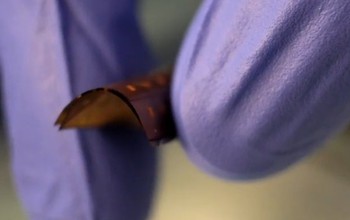


NSF enlists National Academies experts to envision future multidisciplinary engineering research.
August 5, 2015 What is needed to create ubiquitous future technologies that will enable new industries, and who will create them? Currently, NSF Engineering Research Centers address a variety of engineering and technological challenges as they pursue transformational research, education and innovation outcomes. This model has resulted in significant national returns on investment for 30 years. In consideration of significant, ongoing changes -- in science, engineering, education, economics, demographics, and the global landscape -- the National Science Foundation (NSF) seeks to ensure future engineering research centers will continue to benefit the nation. To do so, the NSF Directorate for Engineering has awarded a grant to the National Academy of Engineering (NAE) and the National Academies of Sciences, Engineering, and Medicine’s Division on Engineering and Physical Sciences for a study to determine what center-based research, education and innovation models could be the most effective as the U.S. and global landscapes undergo future shifts. “Our Engineering Research Centers, first developed nearly 30 years ago with the help of the National Academies, have yielded great advances in manufacturing, communications, biomedical, and other sectors,” said Pramod Khargonekar, NSF assistant director for engineering. “Now we are thinking of the next 30 years, and how to ensure that our center-scale investments in engineering research, innovation and education continue to create innovators and catalyze new technologies and industries for the benefit of all Americans.” "This announcement highlights a continuation of over three decades of collaboration between the National Science Foundation and National Academy of Engineering on multidisciplinary, center-based engineering research, development and innovation,” said NAE president C. D. Mote, Jr. “Collaborations that advance multidisciplinary engineering and develop talent for the great problems of our time are mandatory for leadership in this world of accelerating change." During the next two years, forward-thinking experts appointed by the presidents of the NAE and National Academy of Sciences will envision potential future opportunities, missions, measures and models for engineering research centers. The committee will evaluate center designs and features for their ability to achieve breakthrough, multidisciplinary discoveries and innovations and to prepare an inclusive, innovative engineering workforce for success. They will also anticipate forms of university-industry partnerships that will spur translational research and accelerate real-world deployment in the future, allowing centers to maximize their contributions to the innovation ecosystem in the coming decades. As part of their collection of data and perspectives, the committee of experts anticipates holding a public symposium in 2016. At the end of the project, the committee will publish a peer-reviewed report. Media Contacts
Sarah Bates, NSF, (703) 292-7738, sabates@nsf.gov
Nicole Flores, National Academy of Engineering, (202) 334-2226, nflores@nae.edu Program Contacts
Garie Fordyce, NSF, (703) 292-4603, gfordyce@nsf.gov
Sohi Rastegar, NSF, (703) 292-5379, srastega@nsf.gov Principal Investigator
James Lancaster, National Academies of Sciences, Engineering, and Medicine, jlancaster@nas.edu Related Websites
Previous engineering research center study by National Academies: http://www.nsf.gov/cgi-bin/good-bye?http://www.nap.edu/catalog/616/the-new-engineering-research-centers-purposes-goals-and-expectations "This announcement highlights a continuation of over three decades of collaboration between the National Science Foundation and National Academy of Engineering on multidisciplinary, center-based engineering research, development and innovation,” said NAE president C. D. Mote, Jr. “Collaborations that advance multidisciplinary engineering and develop talent for the great problems of our time are mandatory for leadership in this world of accelerating change." 
The National Science Foundation (NSF) is an independent federal agency that supports fundamental research and education across all fields of science and engineering. In fiscal year (FY) 2015, its budget is $7.3 billion. NSF funds reach all 50 states through grants to nearly 2,000 colleges, universities and other institutions. Each year, NSF receives about 48,000 competitive proposals for funding, and makes about 11,000 new funding awards. NSF also awards about $626 million in professional and service contracts yearly. Useful NSF Web Sites:
NSF Home Page: http://www.nsf.gov
NSF News: http://www.nsf.gov/news/
For the News Media: http://www.nsf.gov/news/newsroom.jsp
Science and Engineering Statistics: http://www.nsf.gov/statistics/
Awards Searches: http://www.nsf.gov/awardsearch/ |
Nenhum comentário:
Postar um comentário
Observação: somente um membro deste blog pode postar um comentário.